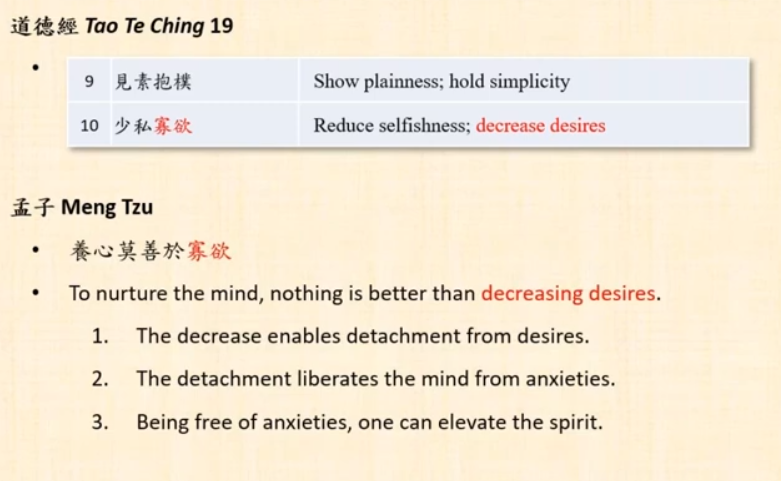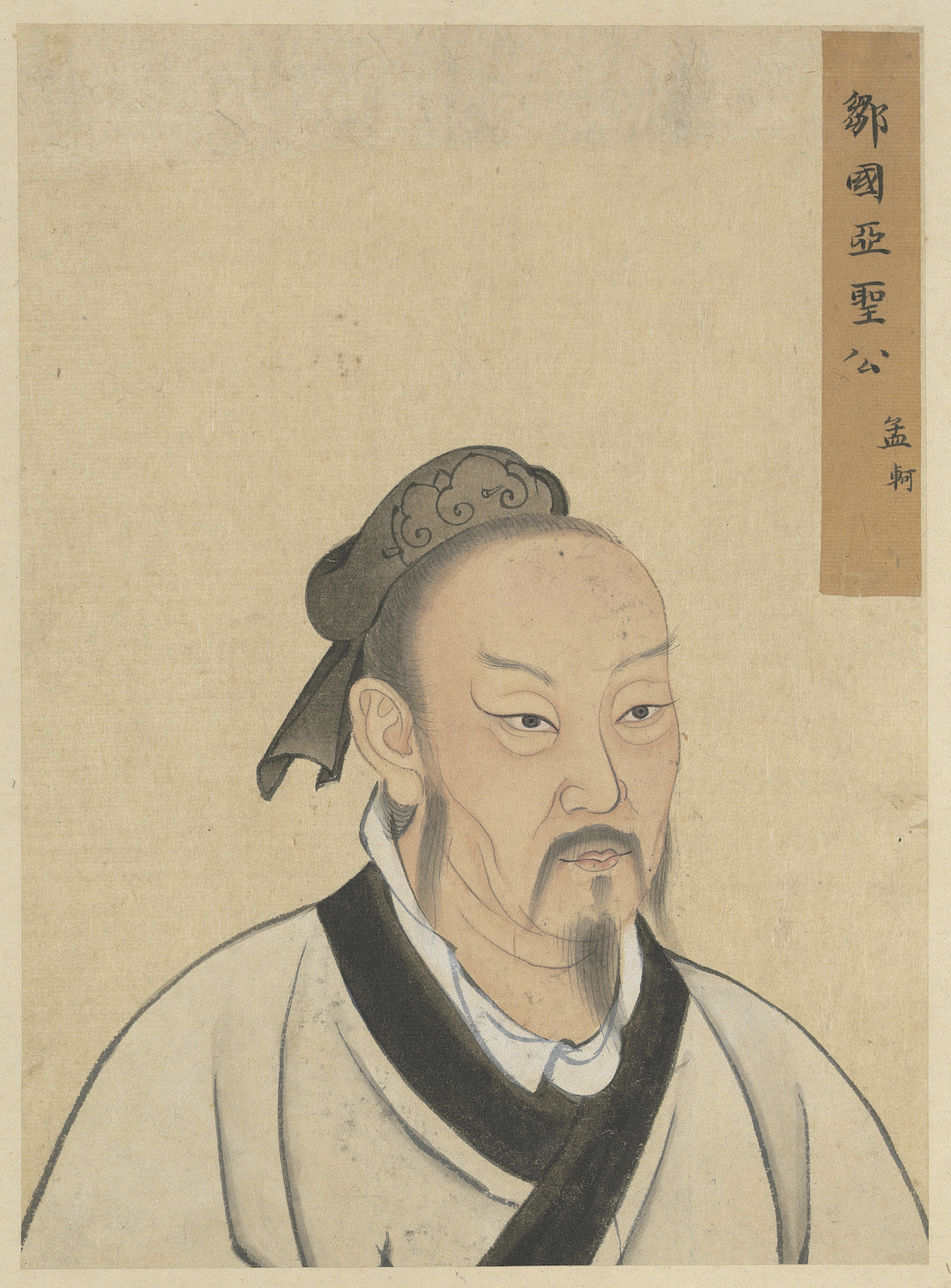Decrease Desires. The P’u Principle.

The term means to lessen desires for external things. Humans are prone to pursue excessive desire, which can be harmful to themselves, cause problems with others and lead to social disorder. This is why both Confucian and Taoist scholars called for restraining desires. In Confucian thinking, self-moral cultivation is needed to restrain desires, which, in turn, provides an important way to foster one’s virtue. For Taoism, restraining desires can help people return to “a natural state.”

Mencius said, “The best way to conduct self-cultivation is to restrain desire. A person with few desires may be lacking in virtue, but such loss in limited; a person with many desires may still retain some virtue, but will lose much of it.” (Mencius)
Cast aside saintliness and wisdom, and the people will benefit greatly; cast aside benevolence and righteousness, and the people will revert to their natural dutiful feelings; cast aside smartness and gain and thieves will disappear. Saintliness and wisdom, benevolence and righteousness, and smartness and gain are all unnecessary embellishments and are inadequate for governance. People must return to their natural state and restrain their desire. (Laozi)